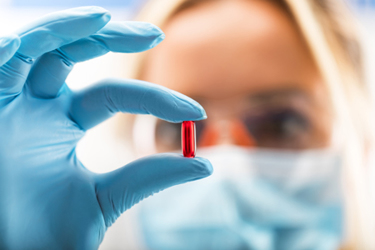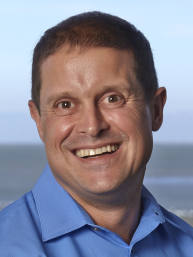Why Every Biotech Needs Qualified Drug Hunters

By Ed Miseta, Chief Editor, Clinical Leader

Christopher Kirk, co-founder, president, and CSO of Kezar Life Sciences, believes every biotech needs a good drug hunter. The term was coined by John Fowler, Kezar’s co-founder and CEO who once used it to refer to Kirk.
How many projects in the discovery phase make it to clinical trials? There are not many statistics available, but some estimates place the figure at about one in 100. The number of Phase 1 drug candidates that make it through to regulatory approval is approximately 15%. In one of the therapeutic areas where Kezar Life Sciences works, small molecule anti-cancer agents, the number is around 5%.
“This is an industry that is rife with failure,” says Kirk. “Every failure will cost companies a lot of time and money. A small biotech cannot afford expensive failures. Therefore, every company needs their scientists focused on meaningful drug discovery research with the goal of reducing this failure rate.”
Drug Hunters Can Review Data

“In a drug discovery program at a biotech company, there is someone who spends their time thinking about the pharmacokinetics of the drug,” he says. “That includes where it goes in the body, how much a patient gets, what happens in the cells at the gene expression level, the safety of the drug, and more. There is someone who thinks about the safety of the drug. There is someone who thinks about how well the drug works. All those people need to be communicating with each other and ensuring we have a holistic picture of what we're learning in the lab. They also need to be constantly asking how the drug compares to other related drugs that have and have not made it to the clinic or failed during clinical trials.
This is where a drug hunter- or even better - a team of drug hunters comes into play. Drug hunters can be individuals overseeing the discovery process and moderating communication between the different teams. People in this role are typically anticipating what should be done next and questioning the data being gathered. While some in the company might have an optimistic view of the data, drug hunters need to be more critical of it.
Experience Pays Off
The drug discovery process involves a little bit of hunch and intuition, particularly in the small molecule space. This is another quality that a good drug hunter will possess. Kirk notes there are people who have spent many years working in drug development. They can look at a molecule and determine whether it has legs, and whether it will get through the initial phases of a clinical trial.
“Some folks have been pioneering new drug targets and drug discovery for decades,” says Kirk. “They have the ability to think three-dimensionally when looking at a chemical structure or a protein and determining if it is interacting the way we think it is.”
As an example, Kirk cites the initial research of immunoproteasome inhibitors to treat cancer and then the discovery that they were good immunomodulatory agents. Kezar is currently studying one such drug candidate, KZR-616, for the potential treatment of autoimmune diseases including lupus nephritis.
“That ‘aha moment’ was something that our team was able to seize upon,” states Kirk. “We were able to develop a body of evidence that indicated we should take selective immunoproteasome inhibitors into the clinic for auto-immunity and were able to convince investors to give us funding to do so. We were able to connect some dots that did not appear to be connected. Sometimes you have to keep trying until you get it right.”
Kirk believes reducing failures must be a focus of the industry if it hopes to cut the time and cost of conducting trials. Reducing failures will depend on how well sponsors select drug targets to pursue. Having open access to clinical data, including successful and failed studies, will play a role. Kirk believes there needs to be a focus on harmonization in how clinical trial data is generated. That will enable researchers to do cross trial comparisons to make future trials more efficient.
“Open access to clinical trial data, particularly data from early trials that were not necessarily successful, is vital to drug discovery,” notes Kirk. “When unsuccessful programs are shut down early, there is a good chance the data will not get out in the public domain. Pharma companies are taking efforts to be more open with their clinical data from programs they're not continuing to pursue. That is good news because it's helpful for the entire field. In addition, we now have some wonderful research databases, such as the Cancer Genome Atlas, which are run by consortiums with funding from the pharmaceutical industry.”
What Makes A Good Drug Hunter?
What should companies look for when selecting a drug hunter? Kirk notes it helps to have a PhD or be a trained lab scientist. He believes the two most important attributes are the ability to speak (or learn) the language of research and the language of clinical science. Kirk notes he has a PhD but is not an MD. He enjoys reading and spends almost as much time reading clinical trial papers as basic research papers.
“It is necessary to have a firm footing in both worlds so you can speak both languages,” he says. “A drug hunter needs to understand and translate data across the chasm of what happens in the lab and what happens in the clinic.”
A drug hunter also needs to be a rigorous scientist who can set up experiments that generate definitive data and information that informs the next step in your drug discovery process.
“If we design trials that don't inform us of what to do in the next set of clinical trials, then we haven't done our job as clinicians,” states Kirk. “If we design an experiment with a drug candidate that doesn't tell us more about it or help us understand how to develop it in the clinic, then we haven't done our job as research scientists. Drug development requires definitive and rigorous science. The drug hunter needs to be team-oriented and open to discussions and debate around the data. Different people will look at the data with different lenses. Companies need someone to look at the data and focus on the truth. Drug discovery and development are team sports, and ensuring those teams work together is really important.”
Kirk also cautions against getting too attached to your molecule. He teaches his scientists that they should be performing experiments to kill the program or kill the molecule. Eliminating molecules early can prevent costly failures in clinical trials and enable small biotech firms to be more successful.
